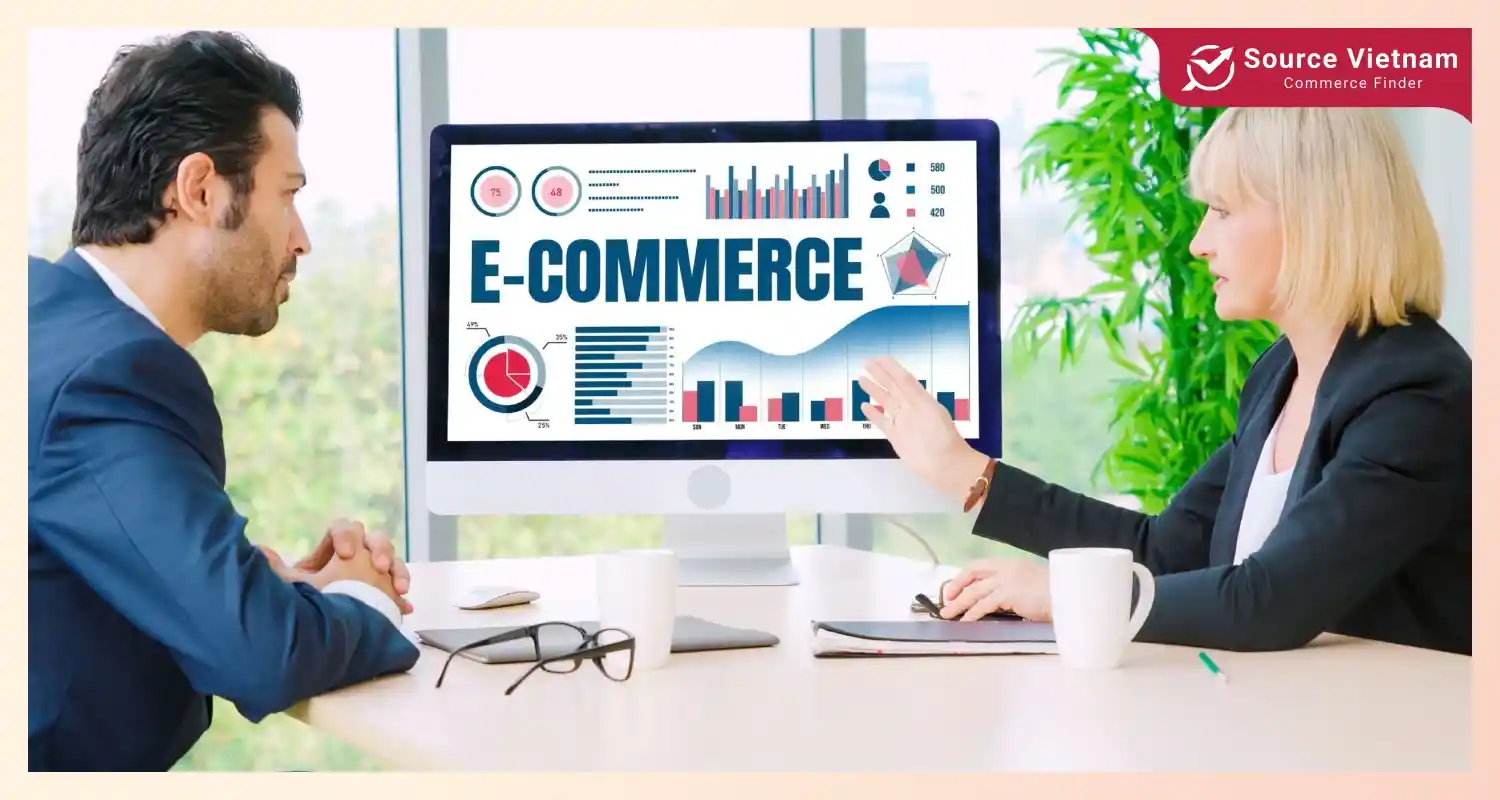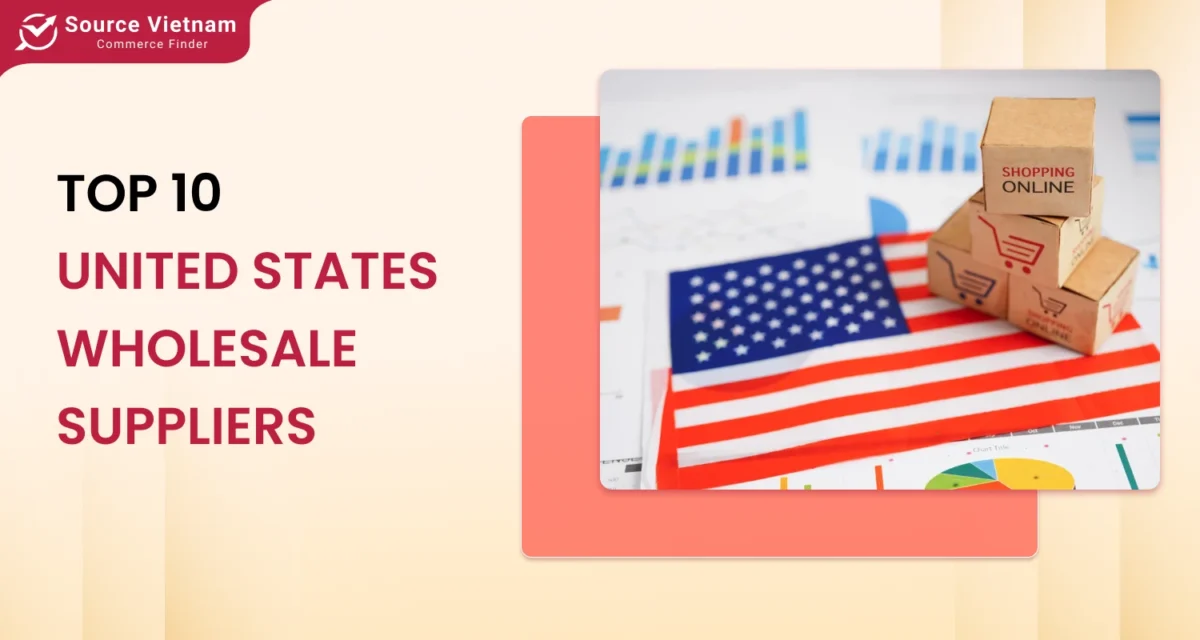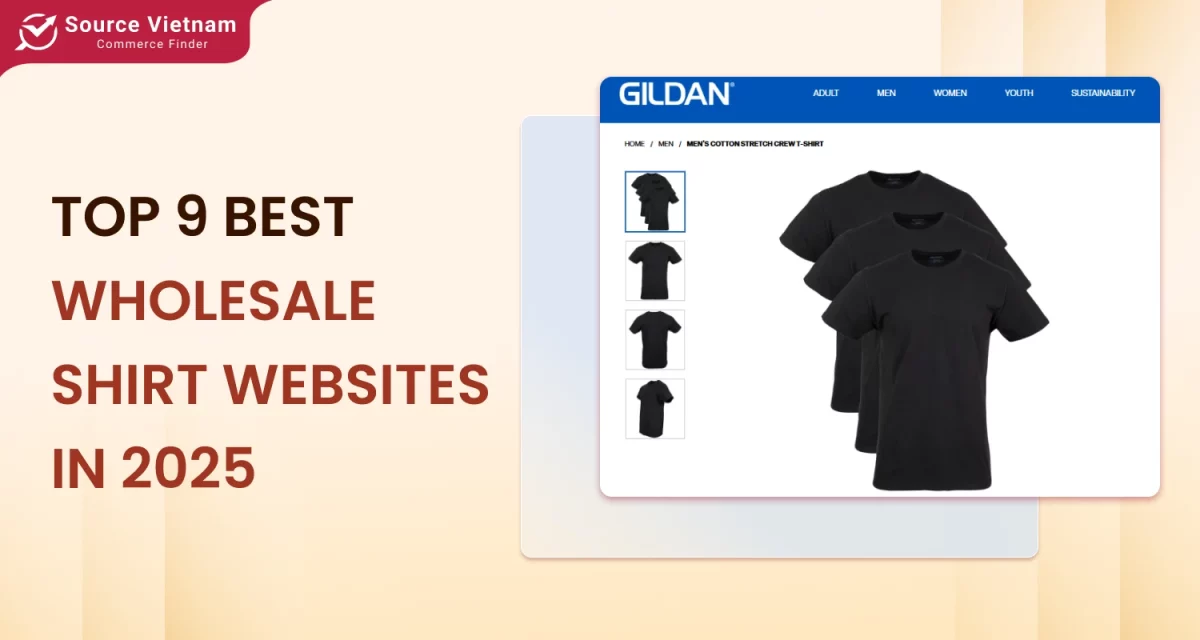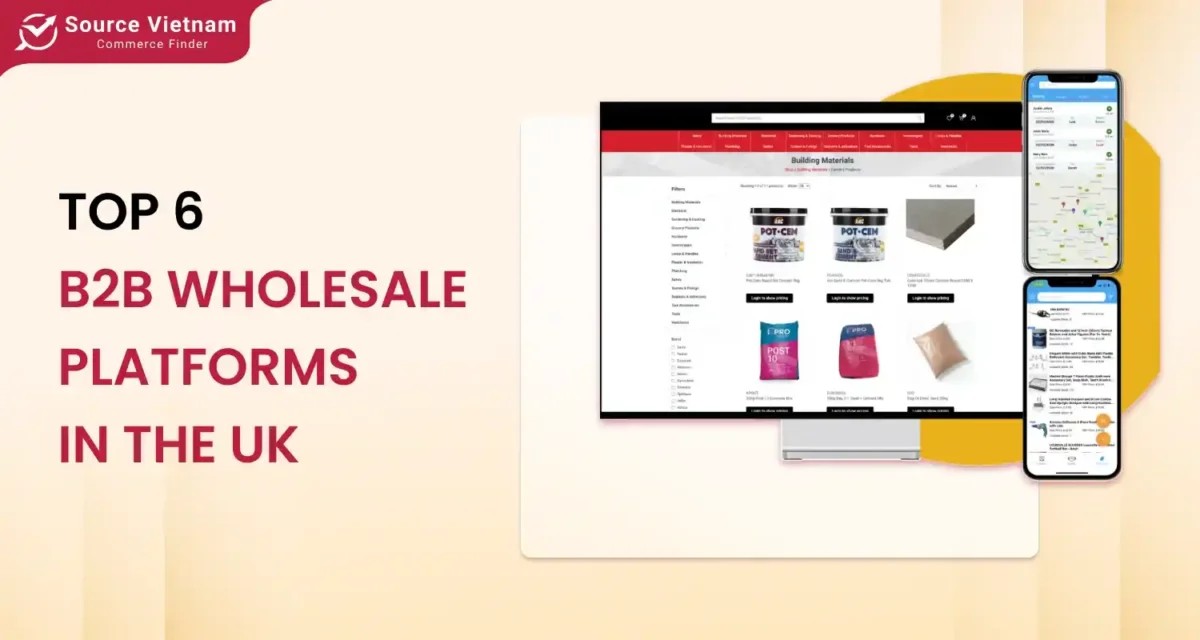B2B eCommerce facilitates online business transactions, encompassing e-procurement, online marketplaces, and EDI. It differs from B2C in key aspects like order size, sales cycles, and customer relationships, offering benefits such as cost savings, global reach, and personalized experiences.

What is B2B eCommerce? Ever wondered how businesses buy and sell products or services to one another over the Internet? It is here that B2B eCommerce comes in. In this modern, digitized world, B2B eCommerce has brought a revolution to the working of businesses, promising unparalleled efficiency and growth opportunities. This article will explain what B2B eCommerce is, its benefits, and why it is becoming an indispensable part of today’s business strategy.
What is a B2B eCommerce platform, and how does it work?
B2B eCommerce in full means business-to-business electronic commerce. It adopts business transactions and communications in an electronic manner. It refers to buying goods and services from companies over an electronic network, mainly using the Internet.
This commerce encompasses various activities, including B2B online marketplaces, EDI (Electronic data interchange), and other online buying processes.
Core elements of B2B eCommerce
- E-procurement systems allow companies to automate purchasing, manage supplier relationships, and track orders efficiently.
- Safe payment gateways: The B2B eCommerce platforms deploy safe payment systems to facilitate transactions that typically include credit terms, invoices, and other financial arrangements.
- Customer relationship management: B2B eCommerce business uses CRM tools to handle client interactions, track sales data, and build long-lasting business relationships.
- Logistics and supply chain management: This includes supply chain activities regarding inventory, shipping, and delivery management.
- Analytics and reporting tools: Most B2B eCommerce platforms are designed with tools for analyzing sales, which enable businesses to make informed decisions.

Read more: What is B2B Marketing Strategy? The Ultimate Guide to Boost Your Growth
How B2B eCommerce differs from traditional business transactions and B2C eCommerce
B2B eCommerce differs from traditional business transactions and B2C eCommerce in several key ways:
| Criteria | B2B eCommerce | Traditional Business Transactions | B2C eCommerce |
| Transaction volume and size | Larger transactions, often purchasing in bulk. | Vary widely | Focuses on individual consumers and smaller transactions. |
| Sales cycle | Longer, involving multiple stakeholders and approval processes. | Depends on the type of business. | Shorter, quicker purchasing decisions. |
| Customer relationships | Emphasizes building long-term relationships. | Some may be long-term, while others are transactional. | Focuses on marketing and customer acquisition. |
| Pricing and negotiation | Negotiable, based on volume and contracts. | Pricing may be fixed or negotiable depending on the business type. | Prices are usually fixed, with discounts and promotions aimed at enticing consumers. |
| Platform and technology use | Utilizes specialized platforms for bulk ordering and complex pricing models. | It may involve various platforms but is not necessarily tailored for online transactions. | Platforms focus on user-friendly design and customer experience. |
What is the difference between B2B eCommerce vs B2C eCommerce?
In Part 1, we discussed the differences between B2B and B2C eCommerce. This section will look at more features to help you understand how these two types of commerce differ.
| Criteria | B2B eCommerce | B2C eCommerce |
| Customer base | Businesses, organizations, and institutions.
Building long-term partnerships. |
Individual consumers. |
| Order size | Bulk purchasing, larger sales, and higher transaction volumes. | Smaller order sizes. |
| Relationship dynamics | Emphasizes long-term relationships and ongoing partnerships. | Less emphasis on long-term relationships, although brand loyalty can play a role. |
| Sales cycle | Longer sales cycle with multiple decision-makers involved. | Shorter sales cycle with quicker decision-making. |
| Marketing strategies | Education and information-sharing to build trust. | Emotional appeals and brand storytelling. |
| Pricing structure | Negotiable and may vary based on factors like volume and contracts. | Fixed, with occasional sales or discounts. |
| Payment terms | Credit terms, invoices, and longer payment cycles. | Immediate payment via credit/debit cards or digital wallets.
Less complexity in payment arrangements. |
Read more: Discover What Is the Difference Between B2B vs B2C Models
Benefits of B2B eCommerce for businesses
Cost saving and streamlined operations
The biggest advantage of B2B digital commerce is that it automates tasks needing heavy manual intervention, such as the processing of orders, sending automated invoicing, and inventory management. This saves money due to labor automation and minimizes the chances of errors, thus making operations run smoother.
24/7 availability and access to global markets
B2B eCommerce platforms make it easier for businesses to sell more to their customers worldwide. With this expansion, there’s a greater opportunity to sell more products.
Furthermore, an online store is always open. Thus, customers can place orders and obtain information at their preferred time, regardless of the time zone. All these are made even better by self-service options where customers can look at product lists, place orders, and track shipments without constant assistance.
Personalized customer experiences and enhanced relationships
Another critical component of B2B digital commerce is the personalization capability to make the customer experience important. These platforms can gather and analyze customer data to recommend products, prices, and promotions that best suit their needs.

Online chatbots and self-service portals provide better customer service by giving fast and efficient assistance and making customers happy. Also, personalized interactions and rapid support build stronger connections with customers, which means more loyal and recurring customers.
Must-have features for effective B2B eCommerce platforms
Flexible user permissions
Give different levels of access to different users, such as sales representatives, managers, and administrators, to decide who can view, edit, or approve orders, products, and prices. With customized access levels, your platform becomes a more streamlined and efficient tool for all users.
Detailed list of content and products
These will help a customer make a proper decision to buy a product. Give detailed product descriptions, specifications, and pictures, and organize the products into categories and subcategories for easy navigation. A properly structured catalog ensures customers easily find what they need.
Search and navigation
eCommerce platform for B2B creates a powerful search tool where customers can find products themselves, making it easier to find items with filters and sorting methods. The customer could then easily and efficiently track down the products they’re searching for.
Storefront with more attention to user experience
An intuitive storefront designed with the user experience in mind enhances customer satisfaction. Design an interface that is friendly and easy to use, and optimize the website for mobile devices because on-the-go users deserve it. Optimizing for mobile extends accessibility, meeting the needs of modern users everywhere.
Request a quote feature
A ‘request-a-quote’ feature allows customers to easily negotiate prices and receive tailor-made offers. Allow customers to request a special price quote for some products or services, then automate the generation of quotes to lighten the whole sales cycle. This automation not only increases the speed of sales but also enhances engagement.
Volume purchase and bulk discounts
Volume-based pricing and bulk discounts encourage larger purchases by rewarding bigger orders and rotations. Different prices for big orders and grant discounts to encourage larger purchases and improve customer loyalty. This pricing flexibility drives repeat business while increasing overall sales.
Real-time inventory updates
Real-time inventory updates help prevent stockouts and provide transparency for buyers and sellers. Avoid overselling or stockouts with accurate stock levels shown in real-time to both buyer and seller. Accurate inventory levels build trust and ensure smoother order fulfillment.
Multiple payment options
The flexible payment options cater to diverse regional and business needs, ensuring convenient transactions. In addition, we can offer diversified payment options to accommodate different regional preferences and business needs. Multiple payment methods make your platform adaptable and user-friendly.
Bulk ordering
Bulk ordering capabilities make high-volume purchases easier, so customers can place orders without hassle. Allow customers to order multiple products at once; this makes purchasing easier for businesses with high-volume needs. It saves time and enhances the B2B buying experience.

The best 5 B2B eCommerce platforms in 2025 for your business
| Platform | Unique features | Benefits for different industries | Suitable for |
| Alibaba |
|
Manufacturing, Wholesale, Retail | Businesses looking to enter international markets |
| Amazon Business |
|
Retail, Office supplies, Healthcare | Companies requiring frequent reorders and bulk purchases. |
| Salesforce |
|
Technology, Service-based, Manufacturing | Businesses where more customer relationship management is focused. |
| Shopify Plus |
|
Retail, High-growth businesses, eCommerce | Businesses planning to expand rapidly and manage large inventories. |
| BigCommerce |
|
Retail, Food and beverage, Electronics | Medium and large-scale organizations with various sale methods. |
Alibaba
Alibaba is a leading global B2B marketplace that connects businesses with suppliers, providing a broad range of products at wholesale prices. It mainly suits those businesses that require numerous suppliers across the globe and wish to purchase products in bulk at better prices. It is a popular choice for manufacturers and wholesalers.
Read more: Top 11 B2B Wholesale Platforms for Businesses in 2025: Best Choices Revealed
Amazon
Amazon is one of the B2B eCommerce sites offering competitive prices and a reliable source for various office and industrial supplies. It’s particularly beneficial for companies in the healthcare and retail sectors seeking convenient purchasing solutions.
Salesforce
Salesforce is a cloud-based customer relationship management (CRM) platform. It suits companies mainly looking for customer relationship management, especially in the technology and service fields.
Shopify Plus
Shopify Plus is an enterprise-level eCommerce platform globally. It is ideal for high-growth, retail, and branded businesses with unique shopping experiences online. Shopify Plus helps brands sell wherever customers are shopping through its omnichannel functionality.
BigCommerce
BigCommerce is a cloud-based eCommerce platform designed for businesses of all sizes. It is ideal for mid-sized to large businesses needing advanced eCommerce and good B2B features. Multi-channel selling and its set of tools targeted at improving search engine rankings, making it right for many industries, including retail and food services.

Real-world examples of successful B2B eCommerce
Grainger
- Industry: Industrial Supply
- Success story: Grainger has transformed the industrial supply business by providing a big online catalog of MRO products. Its ease-of-use platform, fast order completion, and solid inventory management system have made it easy for businesses to buy what they need.
Alibaba
- Industry: Wholesale and manufacturing
- Success story: Alibaba changed global trade by connecting millions of buyers and suppliers. They sell many products through their platform, provide safe payment options, and resolve shipping solutions.
Amazon Business
- Industry: Wholesale and retail
- Success story: Amazon Business has helped the giant tap into the B2B market. It gives many businesses bulk discounts, tailored pricing, and smoother buying processes.
Tech Data
- Industry: Distribution technology
- Success story: Tech Data uses its B2B eCommerce platform to efficiently distribute technology products to resellers and system integrators. The platform maintains real-time inventory, order management, and price personalization.
Main takeaways from these success stories:
- Design user-friendly and easy-to-use platforms to make use of the needs of B2B customers.
- Provide product recommendations, prices, and offers based on customer preference and behavior.
- Use effective order management and fulfillment steps to ensure timely delivery.
- Provide excellent customer support via telephone, email, and live chat.
- Keep data security in mind and take stringent measures to secure sensitive information.
- Monitor key numbers, find trends, and make data-driven decisions using analytics.

The most common problems with online B2B sales and eCommerce solutions
Longer sales cycles and handling complicated deals
Most B2B sales involve many decision-makers and complex approval steps, which could result in longer timelines.
Solution:
- Facilitate payment, propose products that meet the needs of each person, and state the prices clearly.
- Set up automated processes to speed up order processing and delivery.
- Establish reliable relationships to build trust and long-term cooperation based on excellent customer service and personal contact.
Handling large volumes of data and ensuring the scalability of the platform
B2B businesses usually have a lot of product, customer, and order data, which can be cumbersome to manage and comprehend.
Solution:
- Understand customer behavior and market trends more effectively using data analytics tools.
- Develop a scalable e-commerce platform to handle more visitors and data without losing performance.
- Use the cloud-based solution to accommodate evolving business needs.
B2B eCommerce integration with existing systems
Integrating eCommerce platforms with ERP, CRM, or any other system is complex and time-consuming.
Solution:
- Choose an API-first platform to provide interfaces to other systems.
- Outsource to experts to ensure integration goes smoothly and is less disruptive.
- Use strong security steps to keep important data safe during integration.

Future trends in B2B eCommerce
The key trend is the growth of artificial intelligence and automation. AI will transform B2B eCommerce from artificially intelligent chatbots that answer customer queries to automatically processing orders for routine purchases. It will create a future where AI makes B2B transactions seamless and efficient, freeing peoples’ time to do more important work.
Another point is the increased consciousness of sustainability and ethics. Where businesses increasingly understand and are concerned with the environment and social problems, B2B eCommerce must also be on par with this movement.

The other point would be the rising emphasis on sustainability and ethical sourcing. While businesses are increasingly becoming environmentally and socially sensitive, there is a dire need for B2B eCommerce platforms to adhere to this change.
For example, SourceVietnam.com already links businesses with ethically sourced and sustainably sourced products from Vietnam, opening the way to a more responsible B2B marketplace.
Also, personalization using data analytics in customer service will be essential in B2B digital commerce. Companies will leverage customer data in creating personalized buying experiences with product suggestions, pricing, and deals. Hyper-personalization will likely enhance relationships and make customers loyal.
Conclusion
In short, what is B2B ecommerce is the definition gaining increased importance in today’s digitized era. The leading brands in B2B eCommerce, such as SourceVietnam.com the best B2B ecommerce, facilitate global reach and enhance customer service between suppliers and buyers.
FAQs
What are the main differences between B2B eCommerce and B2C eCommerce?
B2B eCommerce involves transactions between businesses and thus generally has a much larger order size, longer sales cycle, and is often subject to a negotiation process. While in B2C, as the term describes it, it focuses on individual consumers and emphasizes small purchases and faster sales movement.
How can small-scale businesses take advantage of B2B electronic commerce?
Small-scale businesses can leverage B2B electronic commerce to expand their reach to a wider customer base and streamline their operations, increasing sales and efficiency.
How does B2B eCommerce marketing help businesses reach target audiences?
B2B eCommerce marketing helps businesses reach target audiences by using strategies tailored to business buyers, such as personalized email campaigns, targeted content marketing, SEO for industry-specific searches, and LinkedIn advertising. These methods allow B2B companies to attract qualified leads, build relationships, and guide potential clients through a sales funnel designed specifically for business purchasing needs, ultimately increasing conversions and customer loyalty.
Is B2B eCommerce good for any industry or only for a few specific sectors?
Yes, B2B eCommerce can benefit nearly any industry. In B2B eCommerce, industries like manufacturing, wholesale, retail, and services are quite suitable. Any industry can use the B2B strategy to smoothen its operations and reach wider markets.
How can B2B eCommerce help in digital transformation?
B2B eCommerce enhances digital transformation by automating sales processes, enabling data analytics, and providing a modern customer platform, increasing competitiveness and efficiency.















